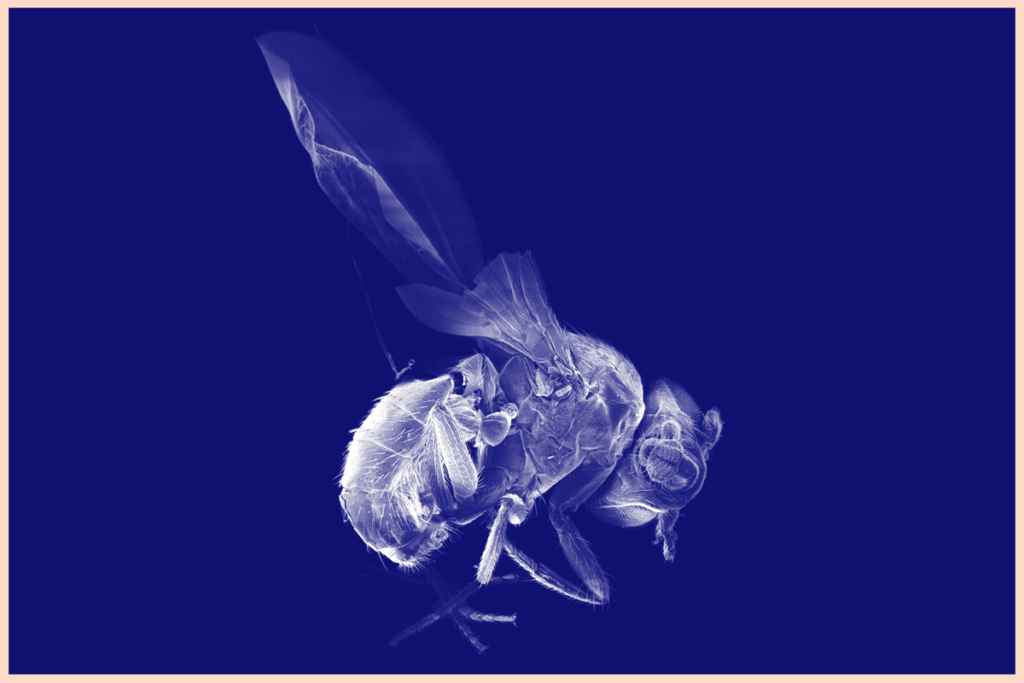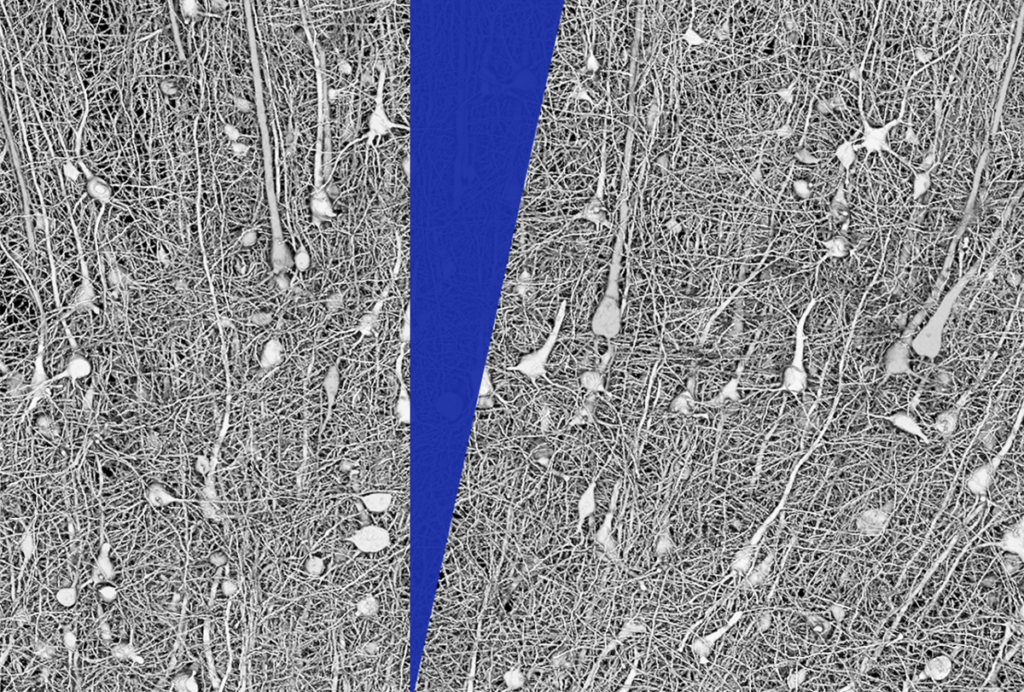The scientists behind a major Drosophila genetics database are scrambling to secure new funding to maintain the resource after their nearly $2 million grant was canceled in May by the Trump administration.
The repository, FlyBase, contains information about every Drosophila gene, phenotypic data and links to relevant research papers and other public databases, including available tools and genetic stocks.
FlyBase is an “absolutely indispensable resource,” says Adrian Rothenfluh, associate professor of psychiatry at the University of Utah. “I literally am on FlyBase every day.”
It contains “essentially everything we know about fruit flies,” says Liqun Luo, professor of biology at Stanford University. “It would be a disaster if this goes dark.”
FlyBase has received funding from the National Human Genome Research Institute—through a grant awarded to Harvard University—since the database’s inception in 1992. But that grant, as well as more than $3 billion in other federal funds for the university, has been canceled by the U.S. government over Harvard’s alleged failure “to confront the pervasive race discrimination and anti-Semitic harassment plaguing its campus,” according to a Department of Health and Human Services press release.
“The only reason FlyBase is in trouble is simply because the grant is being channeled through Harvard,” says Norbert Perrimon, professor of genetics at Harvard Medical School and principal investigator of the FlyBase grant.
Checking FlyBase is often the first step of a research project, Rothenfluh says. In an addiction study, for example, a researcher might look up the genes associated with cocaine use disorder in people and use FlyBase to see which ones are conserved in flies. They then might read published papers on a particular gene, browse available tools for that gene and find mutant strains to order, all on FlyBase. “It’s like one-stop shopping,” Rothenfluh says.
Portions of the fruit fly research community are mobilizing to help. The FlyBase financial troubles were a hot topic of conversation at the Junior European Drosophila Investigator meeting in France today, says Gerit Linneweber, group leader at Freie Universität Berlin. Attendees discussed how they could use some of their own funding to support the database, he adds. FlyBase “connects generations of different researchers” and is so woven into the field that if it shuts down, “part of the identity of fly research would be lost,” he says. “We will try everything that is within our power to actually save this.”
T
he FlyBase team is distributed across four institutions—Harvard, the University of Cambridge, Indiana University Bloomington and the University of New Mexico—but the Harvard grant makes up about 90 percent of FlyBase’s funding, Perrimon says. It covers the cost of maintaining the website and its server, as well as the salaries of about 16 employees. Some of the staff work as curators who comb the literature for new Drosophila papers to add to the database.The National Institutes of Health “stopped paying the bills” for the grant about three months ago, Perrimon says, and “up to now, Harvard has been paying the bills, but this is coming to an end very soon.” The university announced in May that it would provide $250 million to its investigators to cover the cost of canceled grants. Starting 1 July, investigators should spend a majority of their non-federal funding, the announcement states, after which Harvard will provide up to 80 percent of the missing funds; the FlyBase team says it is unclear if they will be eligible to receive any of these funds.
The FlyBase team is searching for other sources of funding, Perrimon says, including donations from private foundations and individual labs. The U.K.-based team has begun requesting donations, and the U.S.-based teams plan to put out their own calls for support soon, Perrimon adds. The group began collecting voluntary user fees a few years ago to bolster their funds, but the money they collected was reported as supplemental income on the grant, so it is frozen as well, Perrimon says.
The current plan is to “freeze the database the way it is right now,” Perrimon says, and raise enough money to fund two or three full-time employees who can migrate FlyBase over to the Model Organism Databases, an initiative also funded by the National Human Genome Research Institute that aims to consolidate databases for all genetic model organisms into a single repository. It is funded by grants awarded to investigators at other institutions, not Harvard, and the funding has not been affected so far. FlyBase was already working to integrate itself into this database before the cancellation.






